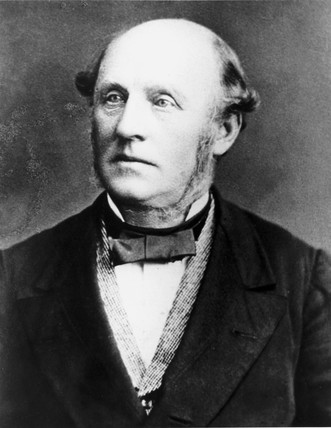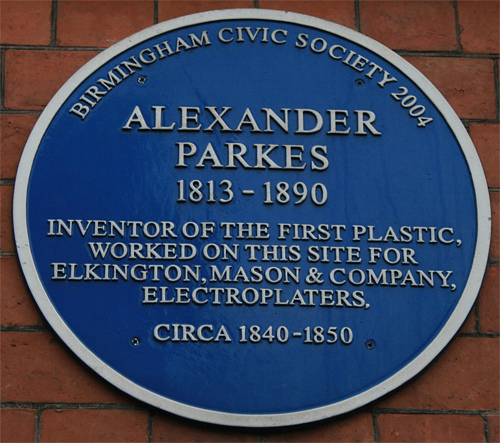 | |
| Born | 29 December 1813 Birmingham |
| Died | 29 June 1890 | Age 76 |
Alexander Parkes 1856
Parkes was born December 29, 1813, Birmingham, Warwickshire, England.Alexander was a British chemist and inventor noted for his development of various industrial processes and materials and for having invented the first plastic that Parkes patented in 1856
Celluloid called Parkesine
His interest in the newly formed rubber industry led to the invention of a new material which he called 'Parkesine'. Parkesine was based on cellulose nitrate and was the first plastic.Parkes observed that the solid residue left after the evaporation of the solvent of photographic collodion was a “hard, horny elastic and waterproof substance.” In 1856, he patented the process of waterproofing woven fabrics by the use of such materials.

Wildlife Conservation
Parkesine played an important roll in conservation. Parkes new plastic set into a hard horny material that he used to mimic ivory and tortoiseshell. No longer did animals need to be killed for this industry, protecting wildlife.World without Plastic

Today plastic is everywhere we look. Every house is full of items made from some form of plastic. Celluloid film was the basis of the movie industry.
Some of the thousands of items made from plastic:
Toothbrushes, buckets, bowls, pens, plates, cutlery, bottles, boxes, bags, toys, pipes, tables, chairs, footballs, CDs etc.
Mouldings for:
Computers, smartphones, printers, screens, keyboards, mouse, webcams, cameras, cars, iPods, MP3 players, vacuum cleaners, Stereos, TVs etc.
Too Durable
...
In the quest for a material that is highly durable this invention has grown into a modern environmental monster. Plastics can take decades to decompose and modern industry has replaced many recyclable materials with plastic. This is especially so with single use items that are discarded and not reused blotting the oceans and countryside. Things made of Plastic


